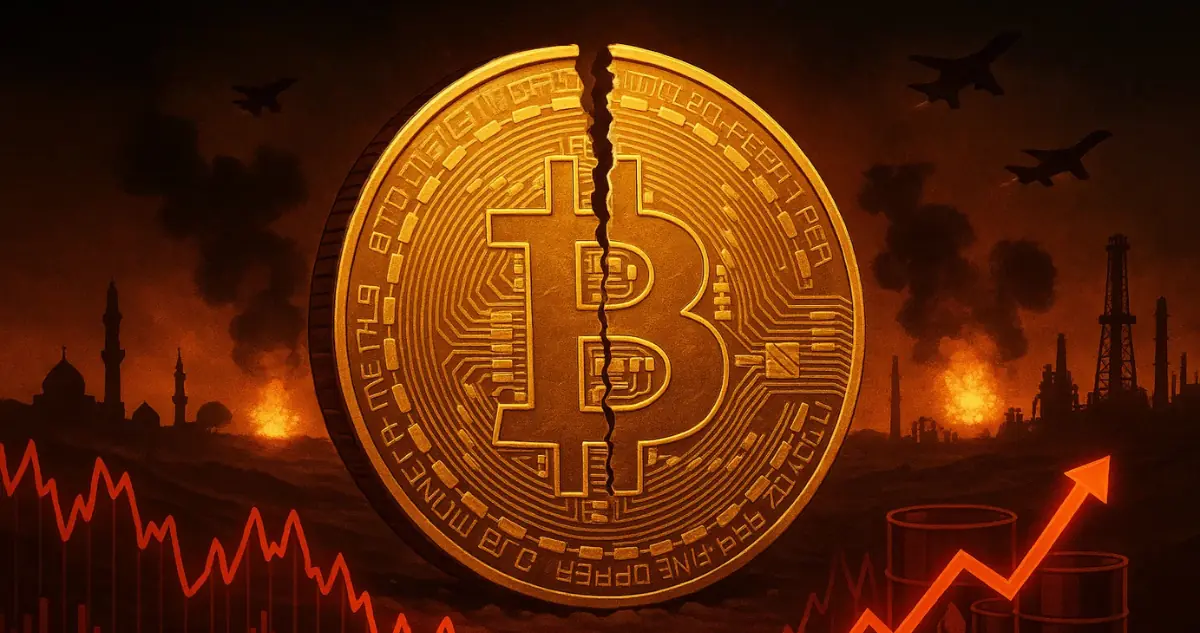The world's leading digital asset, Bitcoin, suffered a significant drop on Friday morning, dropping from $108,000 to around $103,000, losing more than 5% from its peak.
The currency's recent decline came in the wake of Israel's nightly attacks on Iran, damaging Bitcoin's reputation as a safe investment during rising tensions in the Middle East.
In stark contrast, traditional commodities markets surged. Brent and WTI oil benchmarks saw prices rise more than 10 per cent due to disruptions in supply chains in the Persian Gulf, fuelling investor concerns. Gold rose a modest 1 per cent thanks to investors' return to traditional safe-haven assets. At the time of publication, Bitcoin was showing a slight recovery at $104,165.
During Operation Roaring Lion, the Israeli military reported hitting several sites in Iran, including military bases and uranium enrichment plants in Natanz. According to the BBC, Iranian military operations of this magnitude have not been seen since the Iran-Iraq war.
Iranian state media confirmed the deaths of several senior officers in the attack, including Revolutionary Guardians Commander (IRGC) Hossein Salami and nuclear scientist Fereydoon Abbasi. The International Atomic Energy Agency (IAEA)confirmed continuous monitoring of radiation levels and safety measures for its inspection personnel.
Israeli authorities declared a state of emergency, urging the population to stay close to shelters due to the risk of retaliatory attacks. Prime Minister Netanyahu called the strike an essential measure for Israel's defence against the Iranian nuclear project, while Defence Minister Israel Katz described it as a crucial event in the country's history.
The financial repercussions were immediate and widespread. Asian stock markets opened lower due to general uncertainty, pushing investors towards defensive assets. Analysts fear an increase in inflation due to oil prices, which could lead to changes in monetary policies of major economic powers.
In this geopolitical scenario, the performance of Bitcoin highlighted its strong>strong link to high-risk assets, further weakening its reputation as "digital gold". Critical events of the past show how pression to liquidation and volatility consistently override the value reserve function in such situations. The crypto market has lost over $1.1 billion in liquidated positions in the last 24 hours.
Changes in investor positioning reinforce this misalignment through structural portfolio realignments. Institutional investors maintain positions in Bitcoin by adjusting exposure to high-volatility assets when uncertainty increases. Conversely, concrete supply threats trigger immediate responses in commodity markets such as oil, increasing their short-term utility.
International leaders have issued calls for moderation to avoid an escalation of the conflict. British Prime Minister Keir Starmer called for diplomatic solutions, while the United Nations expressed concern about attacks on nuclear facilities. Former President Trump revealed that his administration was aware of the Israeli plans, but chose not to intervene; Senator Rubio confirmed that US military forces remain ready but not involved.
Market participants are closely watching Iranian statements, eventual retaliation and changes in the energy and currency markets, as these elements will affect the regional balance and how investors will manage risk in both digital assets and traditional assets.








